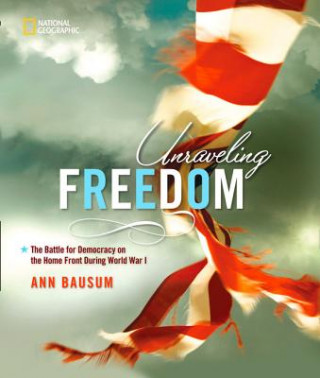
Kód: 05075677
Unraveling Freedom
Autor Ann Bausum
When the submarine Lusitania exploded in 1915, it was the 9/11 of its time. The hysteria that followed set the climate that drew the United States into the War to End All Wars. While fighting to make the world safe for democracy a ... celý popis
- Jazyk:
 Angličtina
Angličtina - Väzba: Pevná
- Počet strán: 96
Nakladateľ: National Geographic Kids, 2011
- Viac informácií o knihe

28.15 €
Dostupnosť:
50 % šanca Máme informáciu, že by titul mohol byť dostupný. Na základe vašej objednávky sa ho pokúsime do 6 týždňov zabezpečiť.
Máme informáciu, že by titul mohol byť dostupný. Na základe vašej objednávky sa ho pokúsime do 6 týždňov zabezpečiť.Prehľadáme celý svet
Mohlo by sa vám tiež páčiť
-

Flash Cartoon Animation
29.89 € -4 % -

Love's Uncertainty
132.10 €
Darčekový poukaz: Radosť zaručená
- Darujte poukaz v ľubovoľnej hodnote, a my sa postaráme o zvyšok.
- Poukaz sa vzťahuje na všetky produkty v našej ponuke.
- Elektronický poukaz si vytlačíte z e-mailu a môžete ho ihneď darovať.
- Platnosť poukazu je 12 mesiacov od dátumu vystavenia.
Informovať o naskladnení knihy
Zadajte do formulára e-mailovú adresu a akonáhle knihu naskladníme, zašleme vám o tom správu. Postrážime všetko za vás.
Viac informácií o knihe Unraveling Freedom
Nákupom získate 70 bodov
 Anotácia knihy
Anotácia knihy
When the submarine Lusitania exploded in 1915, it was the 9/11 of its time. The hysteria that followed set the climate that drew the United States into the War to End All Wars. While fighting to make the world safe for democracy abroad, ironically democracy suffered greatly on the homefront. Nationalist fervor during World War I created one of the most repressive eras in US history. Constrictive legislation, conservative courts, and over-zealous public officials fostered an environment where even the mildest forms of dissent might be met with harsh consequences.Woodrow Wilson, although more remembered as a visionary peacemaker, helped set the tone for this embarrassing period of history. The times featured legislation like the Espionage Act of 1917 (still in effect today), the Sedition Act of 1918 (the first such law in 120 years), and landmark Supreme Court rulings (including the first ones to define - and limit - the concept of free speech). German Americans (who made up some 25 percent of the population) shouldered much of the brunt of this repression as a result of war-time xenophobic fears. Patriots burned German-language books. Schools dropped German from their curricula. Many German-language newspapers lost their rights to use the U.S. mails (and thus went out of business). German-Americans risked being jailed for even the mildest of critical comments or for failing to buy Liberty Bonds that supported the war effort. Hundreds were imprisoned or fined, at times losing property, and even their children, in the process. Individuals with fringe political beliefs became targets of repression, too. Socialists, anarchists, and other radicals lost the right to speak critically of the government and capitalism. The Justice Department established a domestic intelligence division to track radicals (with a young J. Edgar Hoover compiling a database on over 200,000 individuals). The Supreme Court upheld the jailing of Eugene Debs for criticising government limits to free speech (when just six years earlier he had earned a million votes as a Socialist Party candidate). Countless others were jailed, as well. The government deported hundreds of radicals during the war and in its immediate aftermath (with the Red Scare of 1919-20). As the war-time hysteria subsided, many sought to generate renewed respect for the importance of civil rights and free speech. (The American Civil Liberties Union organised in 1920.) Others struggled to explain how a nation fighting to make the world safe for democracy could have so severely damaged its founding principal at home. Appropriate introductory and concluding sections would place this history into the wider context of events, from the Alien and Sedition Acts of 1798 to actions during World War II and the Cold War to the patriotic fervour that accompanied the Iraq War. Bausum's exhaustive textual research leads to compelling human anecdotes while her deep archival photo research turns up rare and special imagery.
 Parametre knihy
Parametre knihy
Zaradenie knihy Knihy po anglicky Children's, Teenage & educational Children's / Teenage: general non-fiction History & the past: general interest (Children's / Teenage)
28.15 €
- Celý názov: Unraveling Freedom
- Podnázov: The Battle for Democracy on the Home Front During World War I
- Autor: Ann Bausum
- Jazyk:
 Angličtina
Angličtina - Väzba: Pevná
- Počet strán: 96
- EAN: 9781426307027
- ISBN: 1426307020
- ID: 05075677
- Nakladateľ: National Geographic Kids
- Hmotnosť: 592 g
- Rozmery: 259 × 220 × 13 mm
- Dátum vydania: 01. January 2011
Obľúbené z iného súdka
-
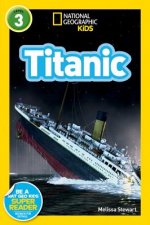
National Geographic Kids Readers: Titanic
6.44 € -2 % -
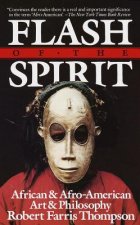
Flash of the Spirit
16.17 € -21 % -

100 Things to Know About History
10.54 € -22 % -

Tales From the Arabian Nights
20.88 € -20 % -

Knowledge Encyclopedia History!
19.45 € -24 % -
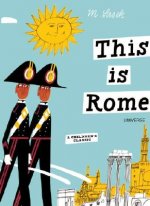
This is Rome
15.45 € -23 % -

Hannah Szenes
15.66 € -3 % -
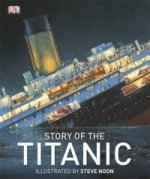
Story of the Titanic
11.15 € -23 % -

See Inside The Second World War
11.46 € -21 % -

Encyclopedia of World History
16.58 € -23 % -
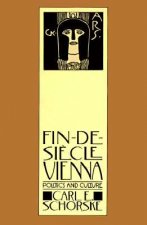
Fin De Siecle Vienna
23.85 € -22 % -
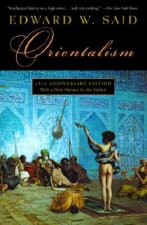
Orientalism
15.15 € -24 % -

See Inside the History of Britain
10.95 € -24 % -
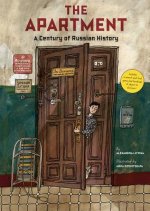
Apartment: A Century of Russian History
46.38 € -9 % -
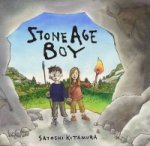
Stone Age Boy
9 € -23 % -

Shackleton's Journey
17.71 € -19 % -
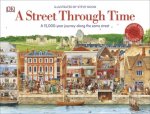
Street Through Time
12.28 € -23 % -

Encyclopedia of Ancient Greece
14.43 € -23 % -

All About Japan
13.20 € -18 % -

Tudor
12.38 € -

Bluest of Blues: Anna Atkins and the First Book of Photographs
15.45 € -23 % -

Industrial Revolution
15.66 € -16 % -

Nobel Prize: the Story of Alfred Nobel and the Most Famous Prize in the World
17.19 € -19 % -

World War I
6.85 € -23 % -

World War II
6.85 € -23 % -

Worst Children's Jobs in History
14.43 € -23 % -
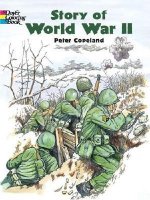
Story of World War 2
5.72 € -23 % -

Fantastically Great Women Who Changed The World
7.47 € -22 % -

Women in Science
14.84 € -17 % -

Look Inside a Castle
10.23 € -24 % -
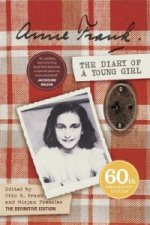
Diary of a Young Girl
10.23 € -22 % -

This is Britain
15.45 € -23 % -

See Inside London
12.28 € -23 % -

24 Hours In the Stone Age
9.51 € -19 % -

Ladybird Histories: British History
10.13 € -22 % -

Gruesome Great Houses
7.98 € -22 % -

Helga's Diary
11.87 € -15 % -
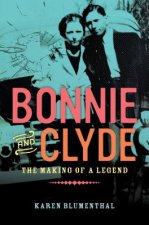
Bonnie And Clyde
20.16 € -6 % -
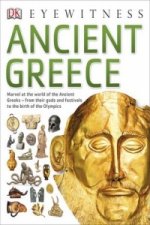
Ancient Greece
18.83 € -

882-1/2 Amazing Answers to Your Questions About the Titanic
14.74 € -19 % -

100 People Who Made History
16.58 € -23 % -
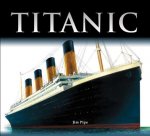
Titanic
25.08 € -4 % -
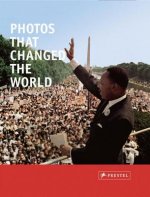
Photos that Changed the World
16.89 € -21 % -
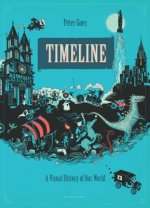
Timeline
22.01 € -23 % -

Story Of Scotland
9 € -23 % -

First Encyclopedia of History
12.69 € -6 % -

Victorians
9 € -23 % -

Ancient Rome
4.09 € -13 % -
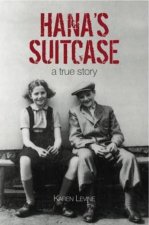
Hana's Suitcase
10.13 € -16 %
Osobný odber Bratislava a 2642 dalších
Copyright ©2008-24 najlacnejsie-knihy.sk Všetky práva vyhradenéSúkromieCookies


 21 miliónov titulov
21 miliónov titulov Vrátenie do mesiaca
Vrátenie do mesiaca 02/210 210 99 (8-15.30h)
02/210 210 99 (8-15.30h)